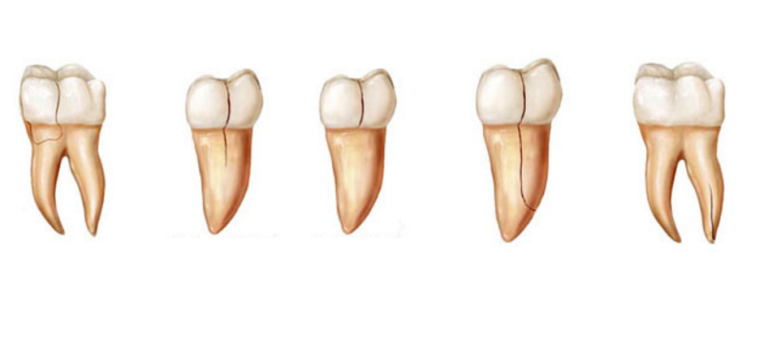Some people are plagued with a bothersome, pain and potentially debilitating dental malady known as cracked tooth syndrome. The following information will offer a brief overview of this condition.
If you are a local Long Island resident, consider 3V Dental in Port Washington for your cracked tooth consultation.
The Definition Of Cracked Tooth Syndrome
This oral ailment happens when a tooth develops a crack that is too minuscule to be detected by the naked eye or an X-Ray apparatus. In many instances, these abnormalities occur in the molars and present under the gum line or in other tooth regions that are difficult to examine.
Causes of Cracked Tooth Syndrome
Medical and dental researchers opine that, in certain cases, no specific reason can be found explaining why impacted teeth develop these tiny breaks. However, said professionals believe the condition might be precipitated by the continual grinding of the teeth, repeated jaw clenching, the abnormal development and placement of teeth, dental procedures such as root canals or teeth equipped with large fillings.
Symptoms of Cracked Tooth Syndrome
The most common physical manifestation someone possessing a cracked tooth might experience is pain. In many instances, said discomfort will intensify when the stricken individual consumes food or the offending tooth is exposed to excessively hot or cold temperatures such as bubbling soup or ice.
That said, dental professionals suggest that discomfort associated with cracked tooth syndrome will be intermittent and not likely as severe as it may be with other oral maladies like cavities or dental infections.
Potential Complications from Cracked Tooth Syndrome
If cracked tooth syndrome is not detected early, the break could progress and eventually result in a chipped tooth or one where a portion breaks away entirely. Chipped or partial teeth could render tasks such as speaking or eating difficult.
Moreover, cracks that appear in or around the gum line are at increased risk of contracting infections. Dental infections, which often present as abscesses (pus filled sacs) require dental intervention. If left untreated, said infections could travel within the mouth or possibly spread to other bodily regions causing potential serious or life-threatening illness.
Diagnosis of Cracked Tooth Syndrome
It is important to reiterate that the breakages associated with cracked tooth syndrome are quite small and cannot be seen by an oral care professionals eye or even through an X-Ray from time to time. On numerous occasions, afflicted persons cope with the associated symptoms for extended duration because their oral care professionals simply cannot detect the abnormality.
That said, should a dentist suspect cracked tooth syndrome, said professional will likely perform a thorough dental examination, as well as employ the use of a tiny device capable of capturing radiographic images of the teeth that could show these little abnormalities.
Oral care experts also caution that, should a cracked tooth syndrome diagnosis be made in one tooth, the chances are significantly increased that the condition will be detected in other teeth as well.
Potential Treatment Options for Cracked Tooth Syndrome
Cracked teeth typically do not heal on their own and typically require some type of dental procedure to fix the breakage or prevent said issue from expanding into a bigger problem. Specific procedures a dentist might employ include root canal, crown insertion or bonding. In the most severe manifestations, said professional may opt to pull the tooth.
Prior to deciding upon the most appropriate form of treatment, an oral care professional will typically weight several factors including but not necessarily limited to the break’s location, its severity, as well as the presenting symptoms and the severity of said occurrences.
Cracked Tooth Syndrome Prevention
Preventing cracked tooth syndrome might be challenging. However, by employing certain oral care measures, said condition may be avoided. Such measures include:
Brushing And Flossing Several Times Daily
Obviously, maintaining individual care of one’s teeth is a critical step in helping maintaining their strength and vitality. Dental professionals urge their patients to brush at least twice per day and floss between meals.
Use Fluoride Toothpastes
The chemical fluoride is known to preserve and strengthen a tooth’s enamel, the structure’s outer covering.
Rinse With Mouthwash
Many mouthwash preparations contain bacteria-killing chemicals. Said agents could prevent potential cracked tooth syndrome complications such as infections.
Refrain From Excessive Sugar Intake
Foods with excessive quantities of sugar could damage teeth and precipitate tooth decay.
Cease Grinding Teeth
Tooth grinding, or bruxism, can place added pressure on teeth and possibly elicit small breakages. Individuals who either grind their teeth or clench their jaw with any regularity are strongly encouraged to stop this potentially detrimental habit.
Receive Regular Professional Care
Frequent dental checkups often go a long way towards preventing oral care problems. Moreover, if any untoward symptoms arise, said occurrences should be immediately evaluated by your dentist at 3V Dental Associates.
[simple-author-box]



